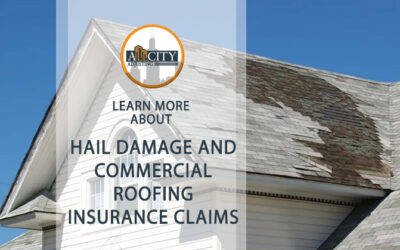Written by Andy Gurczak
April 8, 2022
Homeowners may experience situations in which they leave their homes for an extended period of time. For example, they may have a vacation home at the beach in which they stay the entire summer. Or they moved to a new house but have not yet sold their other house. In any event, homeowners who may leave their homes for more than a few weeks may need vacant and unoccupied home insurance coverage.
What is Vacant Home Insurance?
Standard homeowners’ insurance covers losses to a homeowner who lives in a house which a storm damaged or in which a fire occurred. However, vacant property poses a greater risk of loss to insurance carriers. If a home is vacant and a pipe bursts, the burst pipe and resultant water damage may not be discovered for days or weeks. Likewise, if a fire starts in a vacant or unoccupied home, no one is there to alert the fire department.
Therefore, property insurance companies see an unoccupied and vacant home as being a greater insurance risk than occupied homes.
How Long Can I Leave My Home Unoccupied?
Typically, home insurance company policies exclude losses to homes in which the home was vacant for over 30 days. As another example, for other insurance companies, the exclusion begins after 60 days. Therefore, if your home is going to be vacant or unoccupied for more than your policy permits, you can check with your insurance agent to see if your company offers vacant house insurance.
What is the Difference Between Vacant and Unoccupied Insurance?
There actually is a big difference between the two terms in property insurance. A vacant home is one that is empty of all belongings of the occupants. Therefore, there are no chairs, couches, rugs, appliances, etc. In other words, there are no items in the home that you would expect to see if the home was regularly occupied.
A house could be vacant because the owners moved their possessions to a new house and the vacant house is on the market.
As another example, a house could undergo extensive renovations. The occupants removed all furniture, appliances and other personal property to a storage facility.
On the other hand, an insurance company views a house that still has the belongings of the owners in the house as unoccupied. In the example at the top of the page, the summer vacation home probably has furniture, appliances and summer clothes in closets. Therefore, an insurance company would consider that home unoccupied.
Another big difference is that vacant home insurance is more expensive than unoccupied home insurance. Insurance companies view vacant homes as bigger risks for vandalism, theft, water damage, etc.
Most insurance companies offer coverage for vacant home and unoccupied home losses. In fact, they offer these insurance products either as a separate policy or as an endorsement to a standard home insurance policy.
If Your Homeowners’ Insurance Company Will Not Offer Coverage Your Loss, Call AllCity Adjusting
We are a family-owned claims company with five decades of combined adjusting experience. As a result, if there’s one thing we understand, it’s that you need 100% of your claim value.
At AllCity Adjusting we work to ensure you get 100% of your damage claim value. Equally important, with over 50 years of combined adjusting experience, we know insurance companies and understand where they cut corners.
Is Your Insurance Company Denying Coverage for Damage to Your Vacation Home?
If your insurance company won’t cover losses to your vacation home because you weren’t there often enough, call AllCity Adjusting first. We can review your insurance policy to see if there is a legitimate exclusion for your claim.
If not, we can contact the insurance adjuster to tell him why he is wrong. We can then negotiate the settlement for you you deserve.
Therefore, if you have received a low-ball offer from the insurance company, or they are outright denying your claim, call us at 844.692.3587. Or you can email us at info@allcityadhjusting.com.
Best way to beat the insurance company is to hire AllCity Adjusting
At AllCity Adjusting we help residential and commercial clients alike get the claims support they need. Moreover, we have over 50 years of combined experience helping get our clients the max settlement time and time again. If your claim has been low balled or denied entirely we can help increase your maximum settlement. Call us today for a FREE consultation. Experience the AllCity difference.
Real Support When You Need It!
Related Articles
7 Red Flags That Indicate You Need to Hire a Public Adjuster
If you own property, managing roofing insurance claims might seem tough. Knowing how to quickly deal with roof damage insurance claims from water, weather, fire, or unexpected events is helpful. In this guide, we’ll share useful tips to help you understand and work through roofing insurance claims more easily, aiming for a quicker solution.
Navigating Fire Damage Claims: What Every Property Owner Should Know
If you own property, managing roofing insurance claims might seem tough. Knowing how to quickly deal with roof damage insurance claims from water, weather, fire, or unexpected events is helpful. In this guide, we’ll share useful tips to help you understand and work through roofing insurance claims more easily, aiming for a quicker solution.
The Role of a Public Adjuster in Water Damage Claims
If you own property, managing roofing insurance claims might seem tough. Knowing how to quickly deal with roof damage insurance claims from water, weather, fire, or unexpected events is helpful. In this guide, we’ll share useful tips to help you understand and work through roofing insurance claims more easily, aiming for a quicker solution.
Understanding Water Damage Claims: A Comprehensive Guide for Homeowners
If you own property, managing roofing insurance claims might seem tough. Knowing how to quickly deal with roof damage insurance claims from water, weather, fire, or unexpected events is helpful. In this guide, we’ll share useful tips to help you understand and work through roofing insurance claims more easily, aiming for a quicker solution.
Essential Traits and Skills for a Successful Public Adjuster
If you own property, managing roofing insurance claims might seem tough. Knowing how to quickly deal with roof damage insurance claims from water, weather, fire, or unexpected events is helpful. In this guide, we’ll share useful tips to help you understand and work through roofing insurance claims more easily, aiming for a quicker solution.
Hail Damage Repair
Hail damage can be a formidable adversary, particularly when it targets commercial properties and their roofing systems. Property owners responsible for maintaining their valuable assets often struggle with the aftermath of a hailstorm. In this article, we will explore hail damage repair and commercial roofing insurance claims in detail. Brace yourself for a comprehensive exploration of this critical topic, designed to empower property owners with knowledge and insights.
Stay Up to Date With The Latest News & Updates
Don't Wait - Get More
Get a free 1 hour consultation on your next call. So call today and challenge the insurance company narrative on your policy claim. We can help you with all your public adjuster claims support. Let us help you get more.
Join Our Newsletter
Do you want to learn more about public adjusting. In this newsletter we create helpful tips and hints and you will receive notifications when we post new articles.
Follow Us
Follow us on the following social networks.





Recent Comments